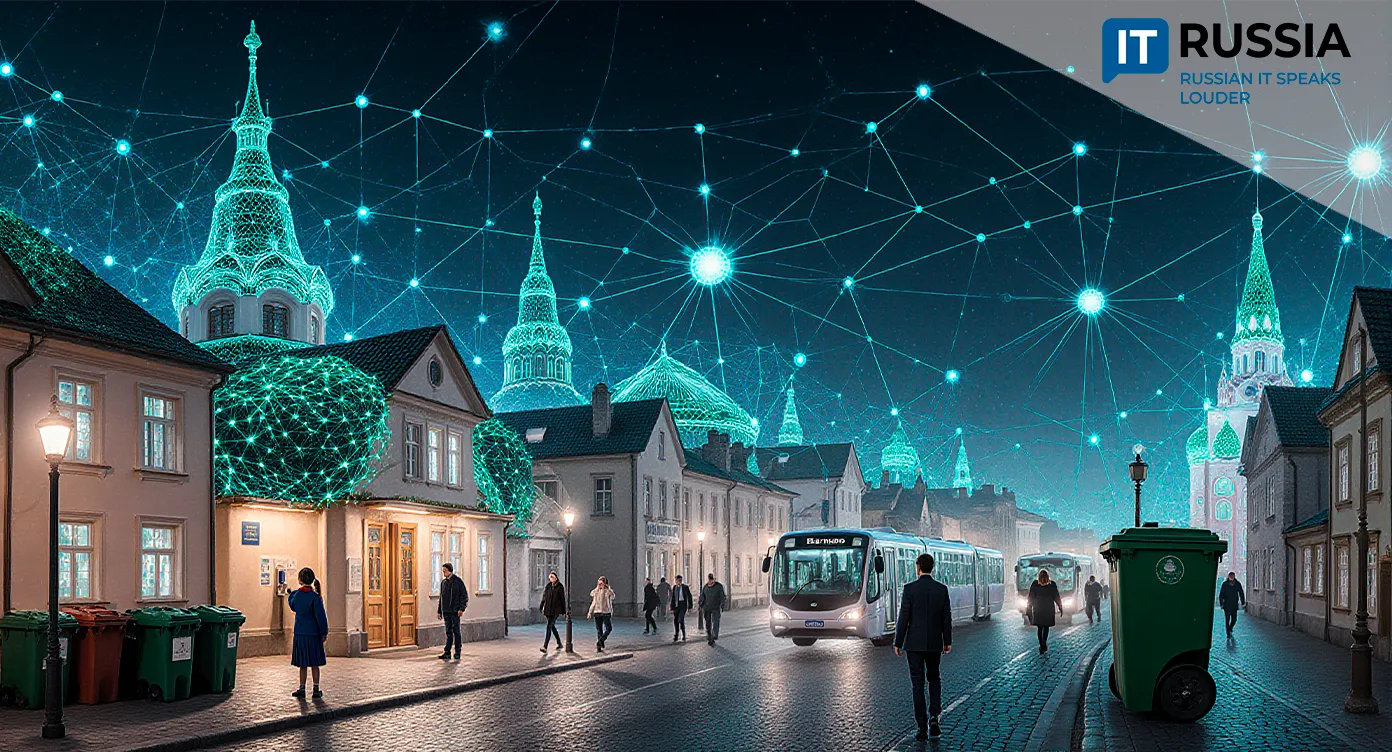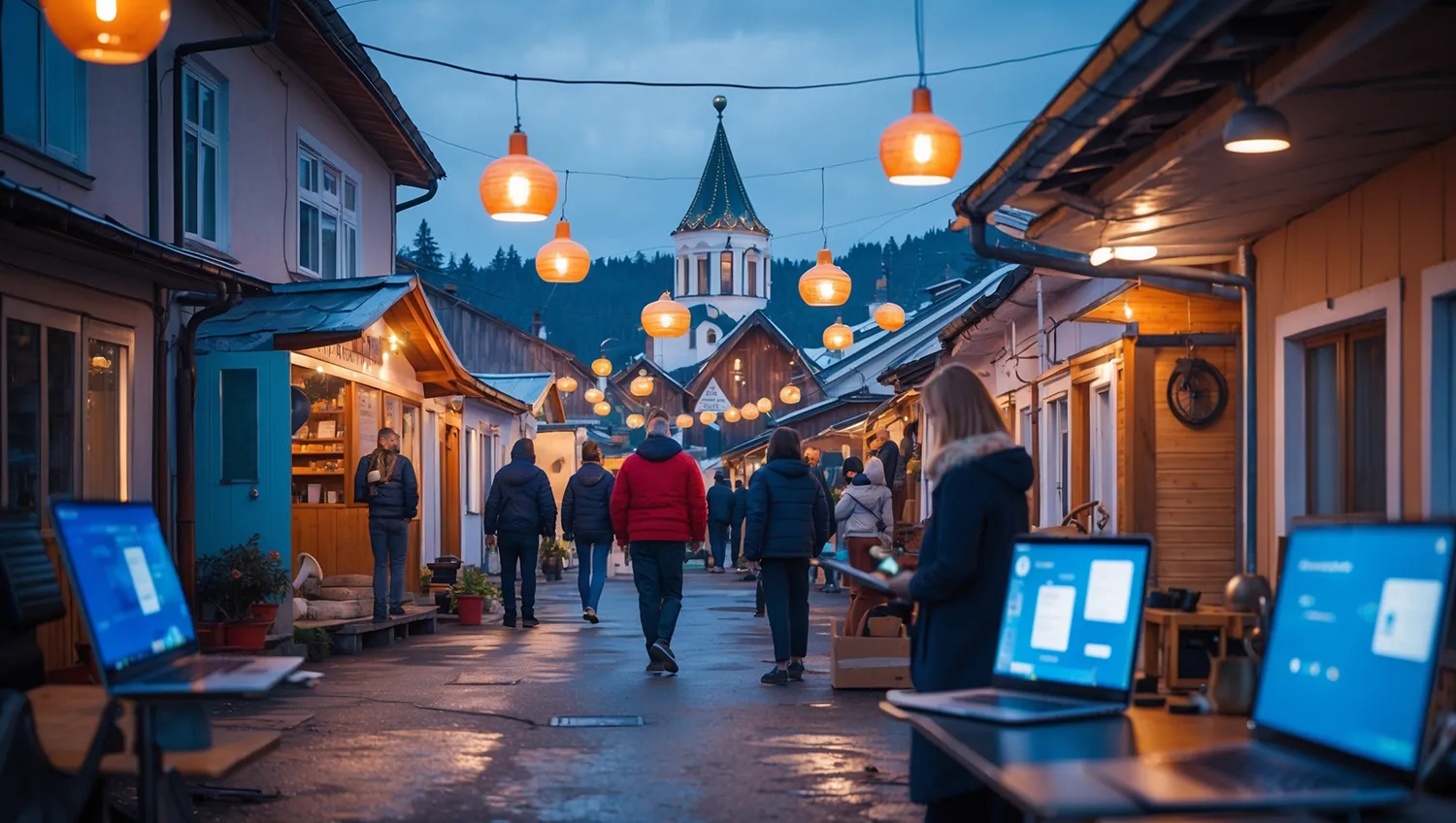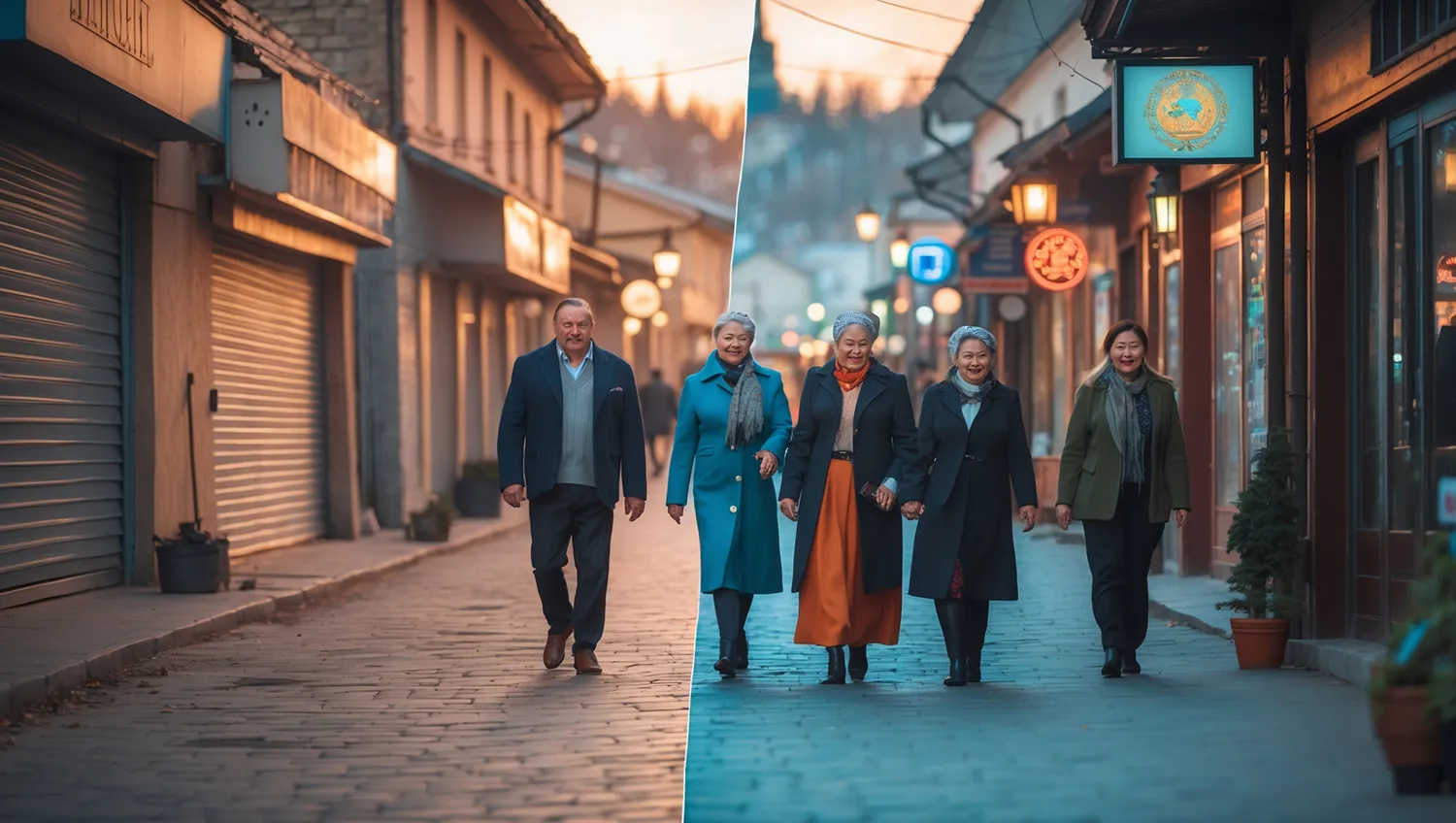More Possibilities: AI Transforms Life in Russia’s Small Towns
For decades, small towns in Russia have been associated with demographic decline and limited opportunities. Today, thanks to artificial intelligence, they stand on the threshold of digital transformation.

From Big Cities to Small Communities
AI technologies are emerging as a new driver of growth for Russia’s small towns, offering fresh opportunities for municipalities, businesses, and, most importantly, residents. These solutions can radically improve quality of life outside metropolitan centers, turning long-standing challenges into opportunities.
Moscow recently hosted the third BRICS “Cloud Cities” forum, bringing together more than 13,000 participants from 42 countries. The event, partnered by VEB.RF, featured nearly 500 experts discussing advanced technologies and how seamlessly they are becoming part of everyday life.
It would be a mistake to assume that innovation happens only in major cities. Experts at the BRICS forum agreed: digital tools, particularly AI, can become powerful engines for growth in smaller communities. Access to modern healthcare, education, and cultural services improves citizens’ quality of life, while digital platforms expand opportunities for work and leisure. Strategically, these changes strengthen Russia’s position in the global AI race and fuel the development of a new high-tech sector.

Comfort, Convenience, and Safety
Theory is already becoming practice. In Tatarstan, 20 schools are piloting a biometric access system where neural networks recognize students’ faces to enhance child safety.
Another pressing issue is waste management and environmental monitoring. With the involvement of the Russian Environmental Operator, AI-based systems are being deployed across regions to monitor garbage collection sites. Computer vision identifies when waste isn’t removed on time or requires sorting, allowing municipalities to respond quickly and maintain cleaner public spaces. AI can also detect illegal dumps and classify waste types.

In Stavropol Krai, the “Waste Management” system uses AI to optimize garbage truck routes, significantly reducing logistics costs.
The rollout of these solutions depends on expanding digital infrastructure: high-speed internet, cloud platforms, and data centers. Just as crucial is workforce training through local educational institutions and broad state support via development agencies.
On the Path to a “Smart” Future
Russia’s AI developments for small towns carry strong export potential. The methodologies and platforms that link government, business, and local communities could be attractive for developing countries with vast territories.

It is clear that Russia recognizes AI’s potential for balanced regional growth. In the coming years, an explosion of pilot projects in tourism, municipal services, and local governance is expected. Small towns are ideal “sandboxes” for testing innovations, helping transform their own landscapes while generating export-ready products proven in real-world conditions.










































